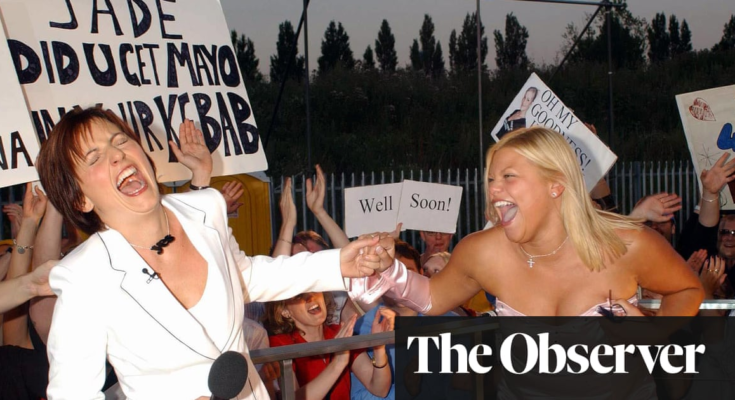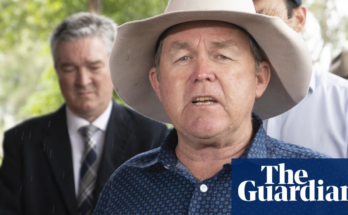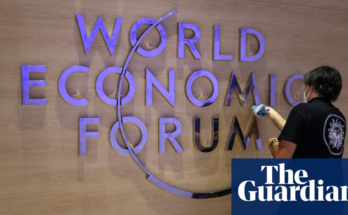A sociologist binge watches the genre that dominates the schedules. But do her findings ring true?
“Humankind,” in TS Eliot’s opinion, “cannot bear very much reality”, but our goggling, glutted species seems able to bear any amount of reality TV. American broadcast schedules devote fully half their time to unscripted programmes, which claim to be spying on reality, though they’re more often flagrantly surreal in their exposure of oddity, perversity and downright monstrosity. Here we have today’s equivalent to the nightmare alleys in itinerant carnivals, where customers used to titter at fat ladies, gasp at shaggy wolfmen and shudder as caged geeks bit the heads off live chickens.
In True Story, the academic sociologist Danielle J Lindemann takes a studious tour of the terrain. She finds toddlers with waxed eyebrows and spray-tanned legs competing in beauty contests: one precocious three-year-old mimics Julia Roberts playing a hooker in Pretty Woman and a seductress aged only two sports the spiky-nippled bra popularised by Madonna. Teenagers queue up to have Dr Pimple Popper squeeze little geysers of pus from their oily faces. At the Redneck Games – an Olympiad for the obese – hillbillies perform belly-flops in mud pits, bob for pigs’ trotters and loudly fart out of sheer delight. Elsewhere, a young woman snacks on the foam innards of her sofa cushions; not to be outdone, a much larger woman in a tent-size purple T-shirt consumes entire mattresses, chomping down to the box springs. A black man with elephantiasis of the testicles needs a hoodie to support his ballooning scrotum. He groans about the load he has to tote around between his bow legs, but is happy to display it to the cameras.
It seems that every American has a constitutionally guaranteed right to life, liberty and the pursuit of celebrity and reality TV is the approved career path for those whose only distinction is an exhibitionistic id. One of my favourites is a tiny, thong-clad hoyden known as Snooki, who rampages through a beach resort in Jersey Shore and tussles with randy young men in a frothing hot tub. Proudly self-invented, when asked about her family, Snooki snarls: “I could be birthed from, like, dragons and squirrels.” Cardi B’s trajectory is even dizzier. She begins as a self-styled “gangsta bitch” in the Bronx, works as a stripper while telling her mother that she’s babysitting, transitions to rap after a spell on a show called Love & Hip Hop: New York, then sets herself up as an Afro-Latina tribune of the people and is allowed to quiz Joe Biden about his policies during the 2020 election campaign. To establish her primacy, she arrives late for her Zoom call with the presidential candidate.
Such hydraulic ascents couldn’t happen over here. Whether they’re set in Chelsea or Essex, British reality shows keep people in the categories to which birth and geography have assigned them and aspiration is punished by disgrace or death: hence Katie Price’s current tiffs with the traffic cops, the cancelling of Jeremy Kyle and the sad expiry of Big Brother’s Jade Goody. Lindemann laments the timidity of our local products. Love Island, she scoffs, “pays lip service (pun intended) to the notion of romantic love”; an American equivalent wouldn’t euphemise all that casual coupling in the tropical underbrush. When the producers of The Real World moved the housemates to London for a season, the soggy tedium of the location almost killed the show off. Should we be proud that reality, on these sinking islands, has proved to be so intractable?
Characters on the shows Lindemann studies are shamelessly hedonistic, but she treats her own addiction to the genre as a guilty pleasure and frets to extract some educational value from it. She cites an ethicist who claims that reality TV is “a tool for inclusivity” and a professor of religious studies who believes that Keeping Up With the Kardashians offers meditative balm for distracted souls. Finally, Lindemann compresses her hundreds of binge-watching hours into a series of “teachable moments”, which reveal how a culture imposes the “social fictions” of race, class or gender and stigmatises those who deviate from its arbitrary norms.
This liberal agenda leaves me unconvinced: the starkest and most brutal of the reality shows dramatise more elemental struggles, in which all of us are muckily embroiled. Sexual selection is managed with ruthless briskness in The Millionaire Matchmaker, where the gold-diggers jostling for a date with a rich bachelor are told: “The penis does the picking.” In Big Brother, sacrificial victims are marked out for mockery and character assassination. Survivor is about a battle to the metaphorical death and in Naked and Afraid castaways have to fight their way out of the wilderness armed only with machetes or fire-starters.
The broadcaster Ted Koppel once asked whether reality TV was “the way a civilisation ends”, to which the novelist Kurt Vonnegut smartly retaliated by demanding”: “What makes you think we have a civilisation?” Yes, the barbarians have stormed the citadel and they celebrate their conquest by uproariously farting.
• True Story: What Reality TV Says About Us by Danielle J Lindemann is published by Farrar, Straus & Giroux (£23.99). To support the Guardian and Observer order your copy at guardianbookshop.com. Delivery charges may apply
{{topLeft}}
{{bottomLeft}}
{{topRight}}
{{bottomRight}}
{{/ticker}}
{{heading}}
{{#paragraphs}}
{{.}}
{{/paragraphs}}{{highlightedText}}
{{#choiceCards}}{{/choiceCards}}



